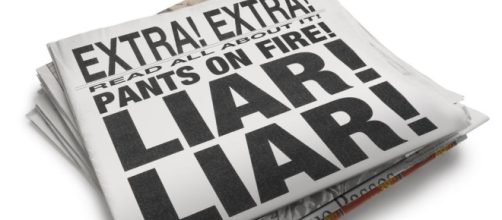When I was at school the teachers emphasized the importance of reading editorials in newspapers. They explained that these were a means of putting forward legitimate opinion and the exercise our minds in freedom of thought. These memories were revived over the last few weeks as I have been closely following the conflict between President #Donald Trump and the American press.
Freedom is not following the leader
The President of the United States holds the highest office in the land and this means that he should and must consider the population as a whole and not just small sections and those who voted for him.
The Press represents these other interests and voices within the country and as such give voice to the concerns of their readers. The opinion pieces then explain the reasons for these concerns.
It is dismaying for anyone to have their ideas and perceptions challenged, but this is a normal step in a person’s life and it is the President of the United States whose actions draw the most attention and therefore the most criticism and praise from the population and Press. Being able to handle these differences of opinion is a fundamental quality to properly handle the Office and guide the country.
In addition, there is one aspect of a Democracy that is often misunderstood. A majority vote does not confer full and unlimited powers to the Leader as these powers are limited by the Law of the land and in particular by the rights and limitations contained in the country’s Constitution.
One of these is Freedom of expression and these expressions include not only peaceful protesters, but also to the Press. Any limitation of the freedom of the Press is effectively a limitation of this freedom.
The biggest accusation
At the end of the 19th Century France was torn apart by the Dreyfus Case when a Jewish Army Officer was accused of treason for being a spy and sent to Devil’s Island for punishment. The country was divided as much by the religion of the suspect as it was for any definitive proof for or against him.
A major turning point came with a letter in a newspaper by writer Emile Zola entitled “J’accuse” (I accuse) to the President of France at the time, Félix Faure, in which he directly accused Army Officers of falsifying the accusations against Dreyfus.
The final result was an investigation that proved that Dreyfus was innocent of the charges and other officers were eventually condemned for their role in the affair.
In the same way the Press in reporters Bob Woodward and Carl Bernstein of the Washington Post was instrumental in the resolution of the Watergate Affair and the fall of President Richard Nixon. It would be easy to find other examples of the investigative role of journalists, but these two cases stand out as they provided decisive moments in the History of their countries.
Legitimate role
As with any profession journalists are answerable for their actions and may be held legally accountable for their articles, yet not agreeing with an article does not mean it is incorrect.
Petty issues such as crowd numbers should not be the cause of conflict and certainly accusing any and every differing opinion as “fake news” is not a reply that does honour to the Oval Office.
While it may be discomforting for any politician to be questioned, or to take offence with statements by reporters, Donald Trump, his Secretaries and advisors cannot mistake the Press as their personal megaphones. The role of the Press is also to question and investigate what they see, even if it discomforts its subject. Within the terms of the Constitution the opinions and the reports of the journalists are as important as those of the President.
The current situation cannot continue and the solution is not in silencing any voice of dissention, such as banning #CNN, but in addressing the issues raised and providing the information required. Any other action is simply failure to respect the constitutional right represented by the Press.

